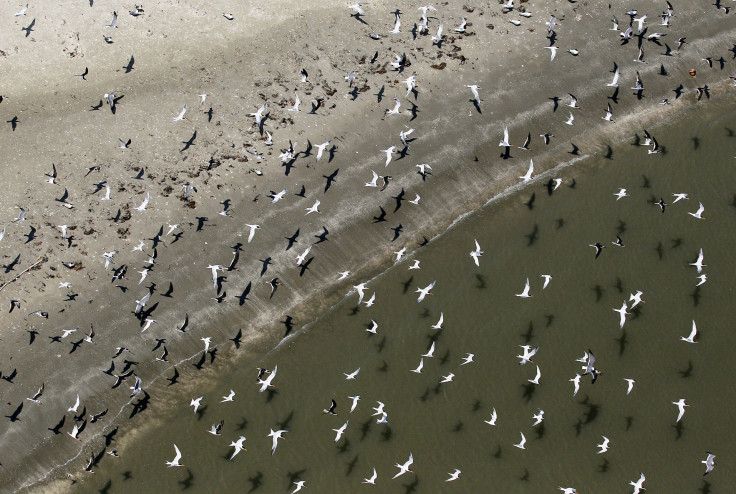Deepwater Horizon Oil Spill: Five Years Later Wildlife Still Suffers

When BP’s Deepwater Horizon oil rig exploded in 2010, it sent an estimated 124 million gallons of crude into the Gulf of Mexico. Five years later, wildlife in the region are still feeling the effects.
“The science is clear that this is not over -- and sea turtles, dolphins, fish and birds are still suffering from the fallout,” said Collin O’Mara, president and CEO of the National Wildlife Federation (NWF), in a Monday statement announcing the organization’s new report showing the extent of the continuing damage.
According to the research, dolphins on the Louisiana coast are dying at four times the ordinary rate, sea turtles aren’t nesting as much as they once did, and fish are growing abnormally since the spill.
There are more than 15,000 species of wildlife living in the Gulf of Mexico’s coastal areas, deep sea floors and wetlands, including a few that migrate from northern areas during the winter. The oil is still affecting them today, and researchers found it shows up in myriad ways. For example, they found that 80 percent of white pelican eggs tested in Minnesota contained traces of a chemical dispersant that was initially used to help break up the oil particles after the spill. Since February 2010, 1,308 marine mammals have washed up dead or have been stranded on beaches along the coast, according to the National Marine Mammal Foundation.
“Given the significant quantity of oil remaining on the floor of the Gulf and the unprecedented large-scale use of dispersants during the spill, it will be years or even decades before the full impact of the Deepwater Horizon disaster is known,” the report reads.
Earlier this month, BP released its own report on Gulf recovery efforts with a slightly different message.
“Areas that were affected are recovering and data BP has collected and analyzed to date do not indicate a significant long-term impact to the population of any Gulf species,” the report said. It notes some examples in which large amounts of animals found dead, such as a group of 130 dolphins, were killed due to causes not related to oil.
But critics were quick to attack BP’s research methods.
“This is not peer-reviewed science. It’s PR,” Melanie Driscoll, director of Gulf Coast bird conservancy at the National Audubon Society whose research was cited in the BP report, said to the Times-Picayune. “What they’re doing is attacking peer-reviewed science by attacking one or two assumptions and then point to data spreadsheets of tens and hundreds of thousands of lines of data without showing their methods or assumptions.”
BP has said it spent $27 billion since the spill, including $14 billion for the initial cleanup and another $13 billion to pay for damages, according to the New York Times. In January, a federal judge ruled that the company would face a maximum penalty of $13.7 billion under the U.S. Clean Water Act, the Wall Street Journal reported.
"BP is committed to restoring all natural resources that credible science shows were harmed by the spill," said BP representative Geoff Morrell in an emailed statement. "To that end, we have already spent $1.3 billion to fund the Deepwater Horizon NRDA, the largest-ever assessment of potential injury to natural resources. We also made an unprecedented, voluntary commitment of $1 billion to early restoration of injured resources. That pledge has allowed 54 restoration projects, costing approximately $700 million, to move forward while the multi-year NRDA process is ongoing."
The NWS is hoping that further damages paid will be used to fund 47 projects the organization hopes will help restore the region to a healthy state.
“Holding BP fully accountable and using all fines and penalties to restore the Gulf of Mexico must be a national priority,” O’Mara said.
© Copyright IBTimes 2024. All rights reserved.












